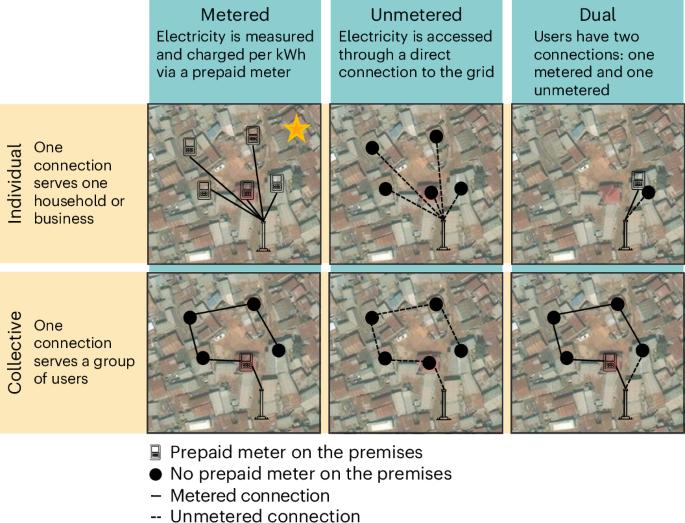Grid connections and inequitable access to electricity in African cities
引用次数: 0
Abstract
As the Global South rapidly and inequitably urbanizes, cities are at the forefront of efforts to address energy-related dimensions of poverty. In many African cities, electricity via a connection to a grid—the gold standard of electrification—has not substantially displaced smoky, polluting fuels. Among low-income communities, connections tend to be based on improvised, informal arrangements with local intermediaries. The nature and level of access these connections provide is not well understood and cannot be easily measured using existing energy access metrics such as the Multi-Tier Framework. This study provides a grounded, empirical analysis of grid connections across 25 informal settlements in the Ugandan capital city of Kampala. Using a mixed-methods approach that incorporates surveys, interviews and remote power quality monitoring, we trace electrical and financial flows between the utility, supply intermediaries and end users. We identify 29 unique configurations of these flows—which we term service arrangements—that provide electricity of varying and overall limited levels of affordability, reliability, voltage stability, precarity, autonomy and safety. Our evidence suggests that the grid delivers highly inequitable electricity services that fall short of aspirations of modern energy for the city’s most vulnerable communities. To investigate inequalities in energy access, Kersey and co-authors conducted a mixed-method study with 25 informal settlements in Kampala, Uganda. They found that despite the expansion of electrical grids in Sub-Saharan Africa, users are connecting to the grid through a range of service arrangements that are highly differentiated and provide inequitable levels of electricity access.

非洲城市的电网连接和不公平的电力获取
随着全球南方迅速而不公平地城市化,城市处于解决与能源有关的贫困方面的努力的前沿。在许多非洲城市,通过电网供电——电气化的黄金标准——并没有实质性地取代烟雾弥漫、污染严重的燃料。在低收入社区,联系往往是建立在与当地中介机构临时、非正式安排的基础上。这些连接提供的访问的性质和级别尚未得到很好的理解,并且无法使用现有的能源访问指标(如多层框架)轻松测量。本研究对乌干达首都坎帕拉25个非正式住区的电网连接进行了实证分析。我们采用结合调查、访谈和远程电能质量监测的混合方法,追踪公用事业、供应中介和最终用户之间的电力和财务流动。我们确定了这些流动的29种独特配置,我们称之为服务安排,它们提供的电力具有不同的可负担性、可靠性、电压稳定性、不稳定性、自主性和安全性等总体上有限的水平。我们的证据表明,电网提供的电力服务极不公平,无法满足城市最脆弱社区对现代能源的期望。为了调查能源获取的不平等,Kersey和他的合作者在乌干达坎帕拉的25个非正式定居点进行了一项混合方法研究。他们发现,尽管撒哈拉以南非洲的电网在扩大,但用户通过一系列高度分化的服务安排接入电网,并提供不公平的电力接入水平。
本文章由计算机程序翻译,如有差异,请以英文原文为准。
求助全文
约1分钟内获得全文
求助全文

 求助内容:
求助内容: 应助结果提醒方式:
应助结果提醒方式:


